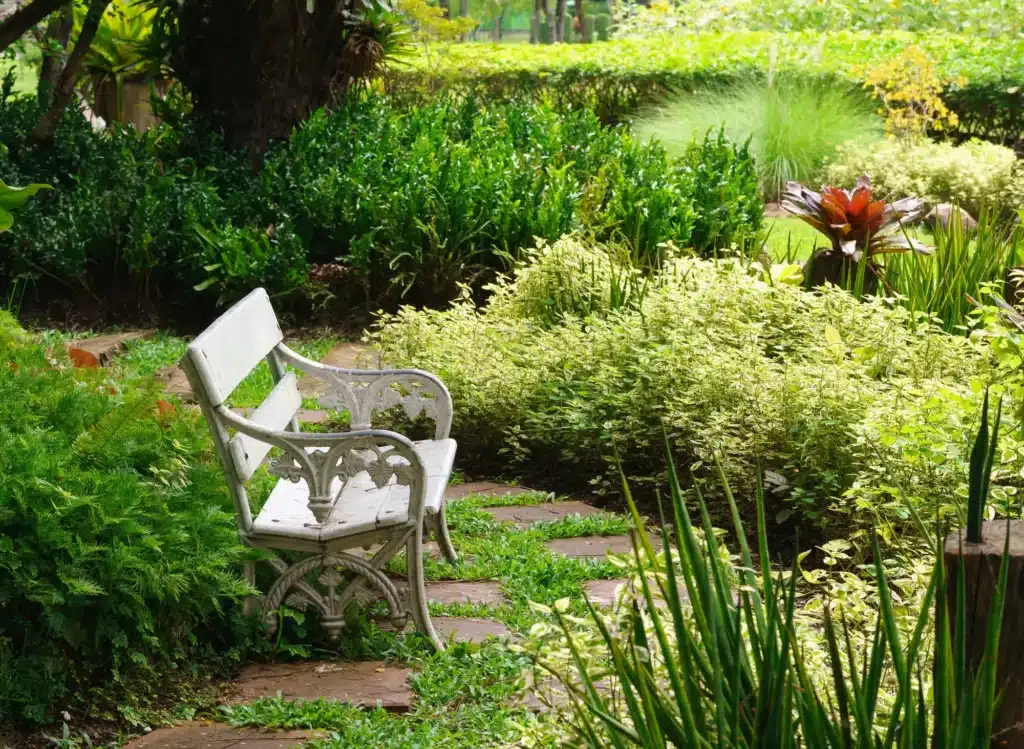An esoteric plant garden is not just a place of natural beauty but also a space filled with spiritual energy and mystery. By choosing the right plants and arranging them strategically, you can create a garden that not only delights the senses but also supports magical and spiritual practices. In this article, we will explore key plants to include in your garden, their esoteric uses, and tips for designing a harmonious and powerful space.
A Brief History of Esoteric Plants
The use of magical plants dates back to antiquity, where they played a crucial role in medicine, religion, and magical rituals. In ancient Egypt, we used plants like the lotus in rituals to invoke the gods. In Greece and Rome, we dedicated plants like bay laurel and garden rue to deities and we used for healing and protection. The Celts considered mistletoe a sacred plant essential in their druidic practices. Pre-Columbian civilizations, such as the Mayans, used psychoactive plants like peyote to commune with deities. These traditions have left a lasting legacy, still influencing the use of plants in various cultures today.
Cultivating esoteric plants in your garden allows you to connect with these ancient traditions and channel natural energies to promote healing, protection, and spiritual elevation. Each plant has specific properties, often linked to natural elements or universal symbols, which can be harnessed in rituals or meditation practices.
Esoteric Plants and Magic
Esoteric plants have always held a central place in the practice of magic. Their connection to the mystical world is based on the belief that each plant possesses a unique energy capable of influencing the environment, health, and even the destiny of individuals. This energy is harnessed through rituals and incantations to attract beneficial forces or repel negative influences.
In magic, plants are often used for their specific properties: some are renowned for protecting against malevolent spirits (sage), while others are used to attract love, prosperity, or healing (St. John’s wort). Practitioners of magic view plants not just as tools but as living allies, endowed with consciousness and intent. Therefore, harvesting plants for magical use is a sacred act, often accompanied by prayers or expressions of gratitude. This symbiotic relationship with nature enhances the power of spells and rituals, grounding magic in a deep respect for natural cycles.
In essence, esoteric plants and magic are inextricably linked, with each plant contributing uniquely to spiritual, ritualistic, and healing practices. Their use continues to remind us that nature, in all its diversity, is an inexhaustible source of power and mystery.
The Esoteric Language of Flowers: Choosing Meaningful Blooms for Your Wedding
Essential Esoteric Plants
Mandrake (Mandragora officinalis)
Mandrake is one of the most mythical plants in European folklore. We often associate it with witchcraft due to its anthropomorphic roots and hallucinogenic properties. Used in love potions or as a talisman, mandrake is believed to attract wealth and protection, but it must be handled with care due to its toxicity.
Lavender (Lavandula angustifolia)
Lavender is another essential plant in an esoteric garden, appreciated for its soothing and relaxing properties. In magic, it is powerful to attract love, peace, and tranquility. Its sweet scent and calming color also make it ideal for sleep and relaxation rituals.
Belladonna (Atropa belladonna)
Used in witches’ potions to induce visions or trances, belladonna is a fascinating and dangerous plant. It was once included in ointments for nocturnal rituals, enabling contact with spirits or traversing spiritual planes. In medicine, we use belladonna for its mydriatic effects, dilating the pupils and enhancing eye beauty.
Mugwort (Artemisia vulgaris)
Known for its protective properties, mugwort is often used in rituals to ward off evil spirits and purify spaces. It is also valuable for promoting prophetic dreams and sharpening intuition. This perennial plant, easy to grow, can be at the garden entrance to protect the entire space.
Sage (Salvia officinalis)
A symbol of purification and protection, sage is an essential plant in spiritual cleansing rituals. We often burn it to purify the air and repel negative energies. Besides its spiritual virtues, we also use sage in herbal medicine for its digestive and antiseptic properties. It grows easily in full sun and can even be integrated into garden borders to create purification pathways.
St. John’s Wort (Hypericum perforatum)
Considered a powerful protective plant, St. John’s wort is often used to ward off evil spirits and heal emotional wounds. It is also famous for its medicinal properties, particularly as a natural antidepressant. In the garden, St. John’s wort should be planted in well-sunlit areas to encourage its growth and maximize its protective effects.
Why You Want These Spiritual Protection Houseplants In Your Home
Designing Your Magical Garden for Your Esoteric Plants
Creating an esoteric plant garden requires thoughtful planning of layout and intention. Here are some tips for designing a harmonious space:
Choose a tranquil spot: An esoteric garden should be a peaceful refuge where you can meditate and connect with nature. Avoid locations too exposed to wind or external noise.
Organize plants by themes: Group plants according to their magical or medicinal properties. For example, dedicate a section to protective plants like mugwort and sage, and another to love plants like lavender.
Create ritual spaces: Designate areas where you can perform rituals or simply meditate. A stone circle in the middle of the garden can serve as a natural altar.
Use natural decorative elements: Incorporate stones, fountains, or statues that symbolize the four elements (earth, air, fire, water) to enhance the energy of your garden.
Follow lunar cycles: Plant and harvest according to the moon phases to align your garden’s energies with those of nature. For example, plant protective herbs during the new moon to strengthen their power.
Maintaining and Using Your Esoteric Garden
Maintaining your garden is crucial for sustaining a positive energy flow. Regularly water your plants, trim them to encourage healthy growth, and use natural composts to nourish the soil. Remember that esoteric plants respond to your energy: take time to connect with them, touch them, smell them, and thank them for their protection and benefits.
When harvesting plants for magical use, do so with intention and respect. Use dedicated tools for cutting and offer a small prayer or thanks to the plant for its sacrifice.
Conclusion
Cultivating an esoteric plant garden is an endeavor that combines natural beauty with spiritual power. Whether you are into witchcraft, meditation, or simply the tranquility of a well-designed garden, these plants will offer you a space where magic and nature come together to nourish the soul and protect the spirit. By following ancient traditions and adding your own intent, you can transform your garden into a true sanctuary of power and peace.
The Healing Garden: Nurturing Mind, Body, and Spirit through Esoteric Horticulture
The post Magical Herb Gardens: Create an Enchanted Garden with Esoteric Plants appeared first on askAstrology.


